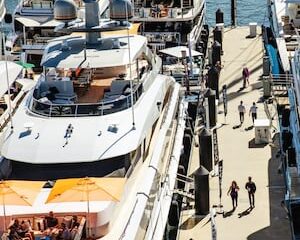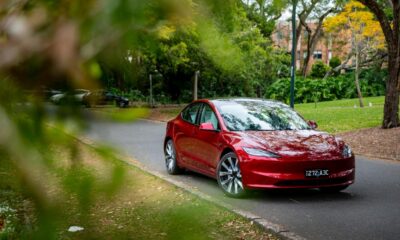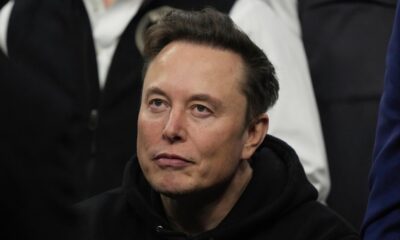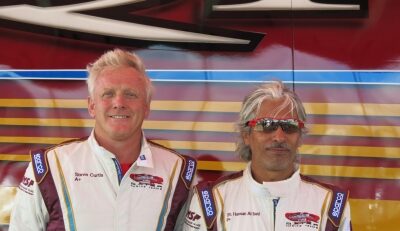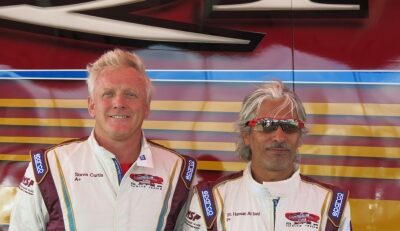Top Stories
Tesla Ordered to Pay $243 Million in Key Largo Crash Verdict
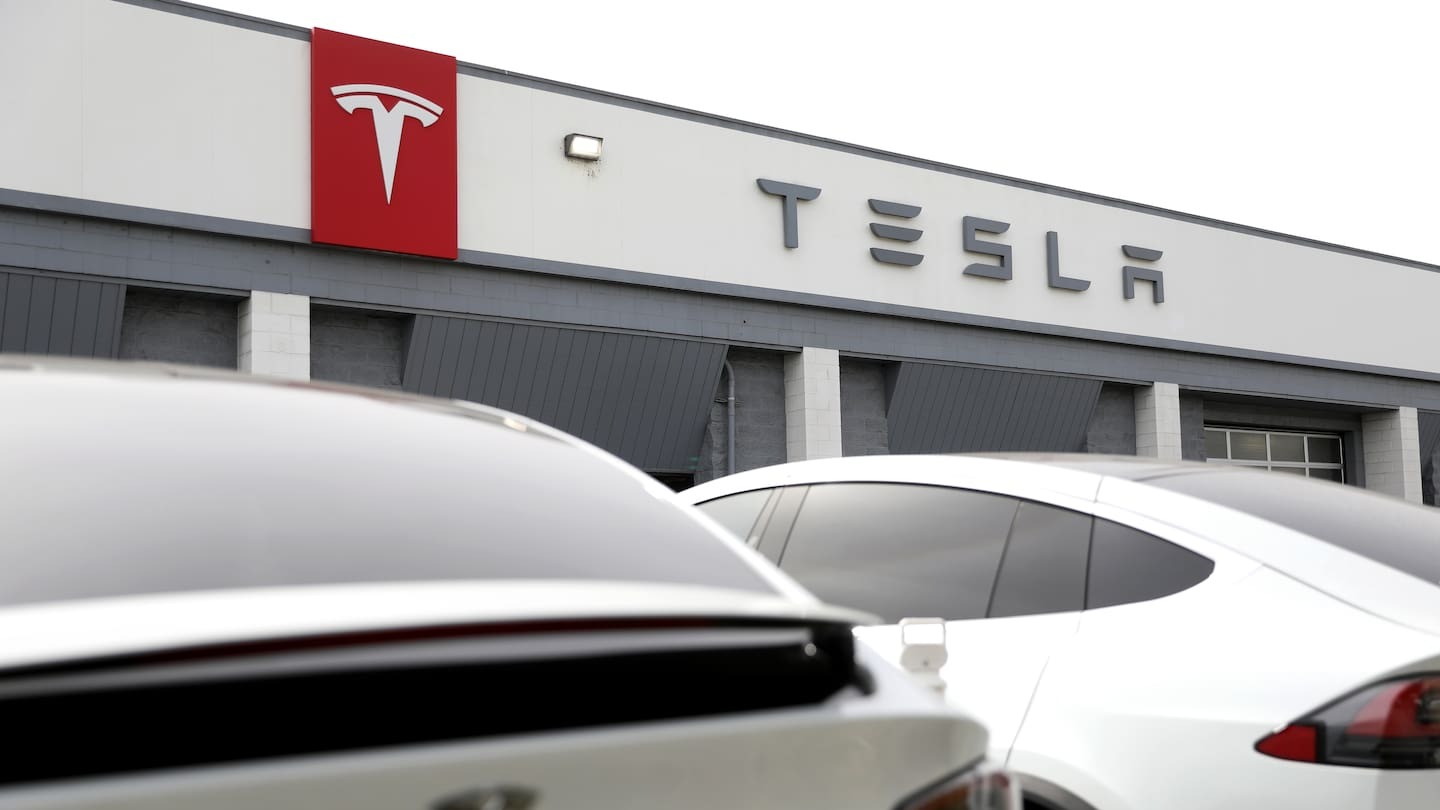
A jury has determined that Tesla is partially responsible for a fatal crash in Key Largo, Florida, in 2019, resulting in a substantial verdict of $243 million in damages. This ruling marks a significant moment for the company, led by CEO Elon Musk, which has historically deflected accountability when its technology is implicated in accidents.
After less than a day of deliberation, the eight-member jury concluded that Tesla’s driver assistance technology contributed to the crash. The driver, George McGee, was found to have taken his eyes off the road, which ultimately led to his Tesla colliding with a young couple. The crash resulted in the death of 22-year-old Naibel Benavides Leon and severe injuries to her boyfriend, Dillon Angulo.
The jury awarded $200 million in punitive damages and $43 million in compensatory damages, with specific allocations of $35 million to Benavides’ mother, $24 million to her father, and $70 million to Angulo. McGee was ordered to cover two-thirds of the compensatory damages. The victims’ families had previously settled with McGee before pursuing Tesla in a federal lawsuit in 2024, claiming that the company allowed its technology to operate on unsuitable roads.
Tesla has maintained that it bears no responsibility for the incident, citing its owner’s manual, which states that the driver must always be in control of the vehicle, regardless of the engaged features. In his closing argument, attorney Joel Smith, representing Tesla, asserted that McGee’s actions were the sole cause of the crash. “He said he was fishing for his phone,” Smith remarked, emphasizing that such distractions can occur in any vehicle.
In contrast, plaintiff’s attorney Brett Schreiber argued that Tesla knowingly promoted the autopilot feature, aware that it could lead to driver distraction. Schreiber referred to a past statement by Musk, which claimed that the emergency braking feature could detect virtually anything, even “an alien spaceship.”
“In the showroom, it’s the greatest car ever made,” Schreiber stated. “In the courtroom, they say it’s a jalopy.” He further contended that Tesla had been aware of defects in its product, allowing drivers to misuse the autopilot feature, which he characterized as a systematic failure.
This verdict poses a significant challenge for Musk, who has heavily invested Tesla’s future in the development of fully autonomous driving technology. The company is currently facing multiple lawsuits across the United States, alleging that Musk has exaggerated the capabilities of Tesla’s autonomous systems. The verdict could lead to increased liability for Tesla moving forward.
Tesla’s recent financial struggles have compounded the pressure on the company. Following Musk’s controversial involvement in politics, Tesla’s sales and profits have declined. In 2023, the company faced two juries in California concerning alleged defects but was not found liable in either instance. Tesla has also settled at least four cases out of court related to its technology, including one regarding autopilot just days prior to the Miami trial.
The trial in Miami was emotionally charged, lasting three weeks with the families of the victims present throughout. They listened as both sides debated whether Tesla’s statements about the autopilot feature were misleading and if the crash could have been prevented.
Public sentiment towards Musk, a polarizing figure in the tech industry, was also examined during the proceedings. The company’s decision to launch its fully autonomous Robotaxi service in August 2023 raised concerns due to the absence of federal regulation and clear safety guidelines.
The trial experienced a setback when one juror was dismissed for perceived bias against Musk, having previously made inflammatory comments on social media. This incident brought additional scrutiny to the proceedings.
Ultimately, the plaintiffs argued that Tesla’s claims about autopilot created unrealistic expectations regarding its capabilities. Numerous statements from Musk suggested that the technology could perform tasks beyond its actual functionality, leading to allegations of recklessness for allowing the feature to operate on roads not suitable for its design.
Despite extensive warnings in the owner’s manual, the law stipulates that drivers are responsible for maintaining control of their vehicles. McGee testified that he had taken his eyes off the road to retrieve a dropped cellphone, but he also acknowledged that he understood his Tesla was not self-driving and that it was his responsibility to remain alert.
The outcome of this case could have lasting implications for Tesla, especially amid ongoing legal challenges and regulatory scrutiny regarding the safety of its autonomous driving technology. As the company navigates this complex landscape, the verdict in Key Largo may reshape its approach to liability and accountability in the future.
-

 World1 month ago
World1 month agoPrivate Funeral Held for Dean Field and His Three Children
-

 Top Stories1 month ago
Top Stories1 month agoFuneral Planned for Field Siblings After Tragic House Fire
-

 Sports4 months ago
Sports4 months agoNetball New Zealand Stands Down Dame Noeline Taurua for Series
-

 Entertainment4 months ago
Entertainment4 months agoTributes Pour In for Lachlan Rofe, Reality Star, Dead at 47
-

 Entertainment3 months ago
Entertainment3 months agoNew ‘Maverick’ Chaser Joins Beat the Chasers Season Finale
-

 Sports4 months ago
Sports4 months agoSilver Ferns Legend Laura Langman Criticizes Team’s Attitude
-

 Sports2 months ago
Sports2 months agoEli Katoa Rushed to Hospital After Sideline Incident During Match
-

 Politics3 months ago
Politics3 months agoNetball NZ Calls for Respect Amid Dame Taurua’s Standoff
-

 World1 month ago
World1 month agoInvestigation Underway in Tragic Sanson House Fire Involving Family
-
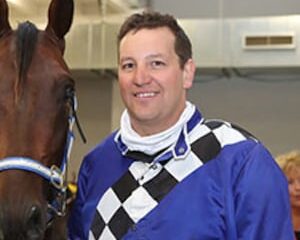
 Sports2 weeks ago
Sports2 weeks agoNathan Williamson’s Condition Improves Following Race Fall
-
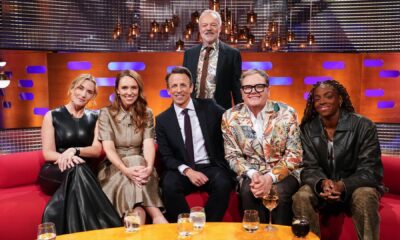
 Entertainment3 weeks ago
Entertainment3 weeks agoJacinda Ardern Discusses Popularity Decline on Graham Norton Show
-
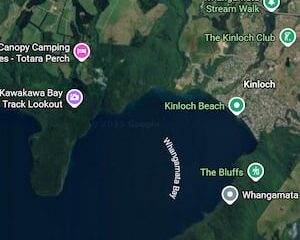
 World1 week ago
World1 week agoInvestigation Launched Following Boat Fire at Lake Taupō

